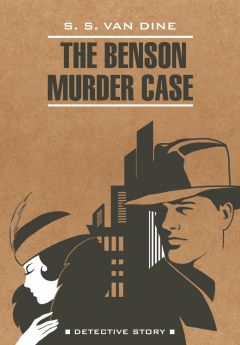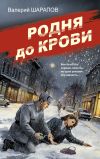
Автор книги: Стивен Ван Дайн
Жанр: Иностранные языки, Наука и Образование
Возрастные ограничения: +16
сообщить о неприемлемом содержимом
Текущая страница: 12 (всего у книги 18 страниц)
Chapter XVII. The Forged Check
(Wednesday, June 19; forenoon)
We rode down town with Markham the next morning, and though we arrived at his office before nine o’clock, Heath was already there waiting. He appeared worried, and when he spoke his voice held an ill-disguised reproof for the District Attorney.
“What about this Leacock, Mr. Markham?” he asked. “It looks to me like we’d better grab him quick. We’ve been tailing him right along; and here’s something funny going on. Yesterday morning he went to his bank and spent half an hour in the chief cashier’s office. After that he visited his lawyer’s, and was there over an hour. Then he went back to the bank for another half-hour. He dropped in to the Astor Grill for lunch, but didn’t eat anything—sat staring at the table. About two o’clock he called on the realty agents who have the handling of the building he lives in; and after he’d left, we found out he’d offered his apartment for sub-lease beginning to-morrow. Then he paid six calls on friends of his, and went home. After dinner my man rang his apartment bell and asked for Mr. Hoozitz:—Leacock was packing up! … It looks to me like a get-away.”
Markham frowned. Heath’s report clearly troubled him; but before he could answer, Vance spoke.
“Why this perturbation, Sergeant? You’re watching the Captain. I’m sure he can’t slip from your vigilant clutches.”
Markham looked at Vance a moment; then turned to Heath.
“Let it go at that. But if Leacock attempts to leave the city, nab him.”
Heath went out sullenly.
“By the bye, Markham,” said Vance; “don’t make an appointment for half past twelve to-day. You already have one, don’t y’ know. And with a lady.”
Markham put down his pen, and stared.
“What new damned nonsense is this?”
“I made an engagement for you. Called the lady by ’phone this morning. I’m sure I woke the dear up.”
Markham spluttered, striving to articulate his angry protest.
Vance held up his hand soothingly.
“And you simply must keep the engagement. Y’ see, I told her it was you speaking; and it would be shocking taste not to appear. … I promise, you won’t regret meeting her,” he added. “Things looked so sadly befuddled last night,—I couldn’t bear to see you suffering so. Cons’quently, I arranged for you to see Mrs. Paula Banning—Pfyfe’s Éloïse, y’ know. I’m pos’tive she’ll be able to dispel some of this inspissated gloom that’s enveloping you.”
“See here, Vance!” Markham growled. “I happen to be running this office—” He stopped abruptly, realizing the hopelessness of making head-way against the other’s blandness. Moreover, I think, the prospect of interviewing Mrs. Paula Banning was not wholly alien to his inclinations. His resentment slowly ebbed, and when he again spoke his voice was almost matter-of-fact.
“Since you’ve committed me, I’ll see her. But I’d rather Pfyfe wasn’t in such close communication with her. He’s apt to drop in—with preconcerted unexpectedness.”
“Funny,” murmured Vance. “I thought of that myself. … That’s why I ’phoned him last night that he could return to Long Island.”
“You ’phoned him—!”
“Awf’lly sorry and all that,” Vance apologized. “But you’d gone to bed. Sleep was knitting up your ravell’d sleave of care; and I couldn’t bring myself to disturb you. … Pfyfe was so grateful, too. Most touchin’. Said his wife also would be grateful. He was pathetically consid’rate about Mrs. Pfyfe. But I fear he’ll need all his velvety forensic powers to explain his absence.”
“In what other quarters have you involved me during my absence?” asked Markham acrimoniously.
“That’s all,” replied Vance, rising and strolling to the window.
He stood looking out, smoking thoughtfully. When he turned back to the room, his bantering air had gone. He sat down facing Markham.
“The Major has practically admitted to us,” he said, “that he knows more about this affair than he has told. You naturally can’t push the point, in view of his hon’rable attitude in the matter. And yet, he’s willing for you to find out what he knows, as long as he doesn’t tell you himself,—that was unquestionably the stand he took last night. Now, I believe there’s a way you can find out without calling upon him to go against his principles. … You recall Miss Hoffman’s story of the eavesdropping; and you also recall that he told you he heard a conversation which, in the light of Benson’s murder, became significant. It’s quite prob’ble, therefore, that the Major’s knowledge has to do with something connected with the business of the firm, or at least with one of the firm’s clients.”
Vance slowly lit another cigarette.
“My suggestion is this: call up the Major, and ask permission to send a man to take a peep at his ledger accounts and his purchase and sales books. Tell him you want to find out about the transactions of one of his clients. Intimate that it’s Miss St. Clair—or Pfyfe, if you like. I have a strange mediumistic feeling that, in this way, you’ll get on the track of the person he’s shielding. And I’m also assailed by the premonition that he’ll welcome your interest in his ledger.”
The plan did not appeal to Markham as feasible or fraught with possibilities; and it was evident he disliked making such a request of Major Benson. But so determined was Vance, so earnestly did he argue his point, that in the end Markham acquiesced.
“He was quite willing to let me send a man,” said Markham, hanging up the receiver. “In fact, he seemed eager to give me every assistance.”
“I thought he’d take kindly to the suggestion,” said Vance. “Y’ see, if you discover for yourself whom he suspects, it relieves him of the onus of having tattled.”
Markham rang for Swacker.
“Call up Stitt and tell him I want to see him here before noon—that I have an immediate job for him.”
“Stitt,” Markham explained to Vance, “is the head of a firm of public accountants over in the New York Life Building. I use him a good deal on work like this.”
Shortly before noon Stitt came. He was a prematurely old young man, with a sharp, shrewd face and a perpetual frown. The prospect of working for the District Attorney pleased him.
Markham explained briefly what was wanted, and revealed enough of the case to guide him in his task. The man grasped the situation immediately, and made one or two notes on the back of a dilapidated envelope.
Vance also, during the instructions, had jotted down some notations on a piece of paper.
Markham stood up and took his hat.
“Now, I suppose, I must keep the appointment you made for me,” he complained to Vance. Then: “Come, Stitt, I’ll take you down with us in the judges’ private elevator.”
“If you don’t mind,” interposed Vance, “Mr. Stitt and I will forgo the honor, and mingle with the commoners in the public lift. We’ll meet you downstairs.”
Taking the accountant by the arm, he led him out through the main waiting-room. It was ten minutes, however, before he joined us.
We took the subway to Seventy-second Street and walked up West End Avenue to Mrs. Paula Banning’s address. She lived in a small apartment-house just around the corner in Seventy-fifth Street. As we stood before her door, waiting for an answer to our ring, a strong odor of Chinese incense drifted out to us.
“Ah! That facilitates matters,” said Vance, sniffing. “Ladies who burn joss-sticks are invariably sentimental.”
Mrs. Banning was a tall, slightly adipose woman of indeterminate age, with straw-colored hair and a pink-and-white complexion. Her face in repose possessed a youthful and vacuous innocence; but the expression was only superficial. Her eyes, a very light blue, were hard; and a slight puffiness about her cheek-bones and beneath her chin attested to years of idle and indulgent living. She was not unattractive, however, in a vivid, flamboyant way; and her manner, when she ushered us into her over-furnished and rococo living-room, was one of easy-going good-fellowship.
When we were seated and Markham had apologized for our intrusion, Vance at once assumed the rôle of interviewer. During his opening explanatory remarks he appraised the woman carefully, as if seeking to determine the best means of approaching her for the information he wanted.
After a few minutes of verbal reconnoitring, he asked permission to smoke, and offered Mrs. Banning one of his cigarettes, which she accepted. Then he smiled at her in a spirit of appreciative geniality, and relaxed comfortably in his chair. He conveyed the impression that he was fully prepared to sympathize with anything she might tell him.
“Mr. Pfyfe strove very hard to keep you entirely out of this affair,” said Vance; “and we fully appreciate his delicacy in so doing. But certain circumst’nces connected with Mr. Benson’s death have inadvertently involved you in the case; and you can best help us and yourself—and particularly Mr. Pfyfe—by telling us what we want to know, and trusting to our discretion and understanding.”
He had emphasized Pfyfe’s name, giving it a significant intonation; and the woman had glanced down uneasily. Her apprehension was apparent, and when she looked up into Vance’s eyes, she was asking herself: How much does he know? as plainly as if she had spoken the words audibly.
“I can’t imagine what you want me to tell you,” she said, with an effort at astonishment. “You know that Andy was not in New York that night.” (Her designating of the elegant and superior Pfyfe as “Andy” sounded a most like lèse-majesté[110]110
lèse-majesté (фр.) —оскорбление величества
[Закрыть].) “He didn’t arrive in the city until nearly nine the next morning.”
“Didn’t you read in the newspapers about the grey Cadillac that was parked in front of Benson’s house?” Vance, in putting the question, imitated her own astonishment.
She smiled confidently.
“That wasn’t Andy’s car. He took the eight o’clock train to New York the next morning. He said it was lucky that he did, seeing that a machine just like his had been at Mr. Benson’s the night before.”
She had spoken with the sincerity of complete assurance. It was evident that Pfyfe had lied to her on this point.
Vance did not disabuse her; in fact, he gave her to understand that he accepted her explanation, and consequently dismissed the idea of Pfyfe’s presence in New York on the night of the murder.
“I had in mind a connection of a somewhat diff’rent nature when I mentioned you and Mr. Pfyfe as having been drawn into the case. I referred to a personal relationship between you and Mr. Benson.”
She assumed an attitude of smiling indifference.
“I’m afraid you’ve made another mistake.” She spoke lightly. “Mr. Benson and I were not even friends. Indeed, I scarcely knew him.”
There was an overtone of emphasis in her denial—a slight eagerness which, in indicating a conscious desire to be believed, robbed her remark of the complete casualness she had intended.
“Even a business relationship may have its personal side,” Vance reminded her; “especially when the intermediary is an intimate friend of both parties to the transaction.”
She looked at him quickly; then turned her eyes away.
“I really don’t know what you’re talking about,” she affirmed; and her face for a moment lost its contours of innocence, and became calculating. “You’re surely not implying that I had any business dealings with Mr. Benson?”
“Not directly,” replied Vance. “But certainly Mr. Pfyfe had business dealings with him; and one of them, I rather imagined, involved you consid’rably.”
“Involved me?” She laughed scornfully, but it was a strained laugh.
“It was a somewhat unfortunate transaction, I fear,” Vance went on, “—unfortunate in that Mr. Pfyfe was necessitated to deal with Mr. Benson; and doubly unfortunate, y’ know, in that he should have had to drag you into it.”
His manner was easy and assured, and the woman sensed that no display of scorn or contempt, however well simulated, would make an impression upon him. Therefore, she adopted an attitude of tolerantly incredulous amusement.
“And where did you learn about all this?” she asked playfully.
“Alas! I didn’t learn about it,” answered Vance, falling in with her manner. “That’s the reason, d’ ye see, that I indulged in this charming little visit. I was foolish enough to hope that you’d take pity on my ignorance and tell me all about it.”
“But I wouldn’t think of doing such a thing,” she said, “even if this mysterious transaction had really taken place.”
“My word!” sighed Vance. “That is disappointin’. … Ah, well. I see that I must tell you what little I know about it, and trust to your sympathy to enlighten me further.”
Despite the ominous undercurrent of his words, his levity acted like a sedative to her anxiety. She felt that he was friendly, however much he might know about her.
“Am I bringing you news when I tell you that Mr. Pfyfe forged Mr. Benson’s name to a check for ten thousand dollars?” he asked.
She hesitated, gauging the possible consequences of her answer.
“No, that isn’t news. Andy tells me everything.”
“And did you also know that Mr. Benson, when informed of it, was rather put out?—that, in fact, he demanded a note and a signed confession before he would pay the check?”
The woman’s eyes flashed angrily.
“Yes, I knew that too.—And after all Andy had done for him! If ever a man deserved shooting, it was Alvin Benson. He was a dog. And he pretended to be Andy’s best friend. Just think of it,—refusing to lend Andy the money without a confession! … You’d hardly call that a business deal, would you? I’d call it a dirty, contemptible, underhand trick.”
She was enraged. Her mask of breeding and good-fellowship had fallen from her; and she poured out vituperation on Benson with no thought of the words she was using. Her speech was devoid of all the ordinary reticencies of intercourse between strangers.
Vance nodded consolingly during her tirade.
“Y’ know, I sympathize fully with you.” The tone in which he made the remark seemed to establish a closer rapprochement[111]111
rapprochement (фр., англ.) – сближение
[Закрыть].
After a moment he gave her a friendly smile.
“But, after all, one could almost forgive Benson for holding the confession, if he hadn’t also demanded security.”
“What security?”
Vance was quick to sense the change in her tone. Taking advantage of her rage, he had mentioned the security while the barriers of her pose were down. Her frightened, almost involuntary query told him that the right moment had arrived. Before she could gain her equilibrium or dispel the momentary fear which had assailed her, he said, with suave deliberation:
“The day Mr. Benson was shot he took home with him from the office a small blue box of jewels.”
She caught her breath, but otherwise gave no outward sign of emotion.
“Do you think he had stolen them?”
The moment she had uttered the question she realized that it was a mistake in technique. An ordinary man might have been momentarily diverted from the truth by it. But by Vance’s smile she recognized that he had accepted it as an admission.
“It was rather fine of you, y’ know, to lend Mr. Pfyfe your jewels to cover the note with.”
At this she threw her head up. The blood had left her face, and the rouge on her cheeks took on a mottled and unnatural hue.
“You say I lent my jewels to Andy! I swear to you—”
Vance halted her denial with a slight movement of the hand and a coup d’oeil[112]112
coup d’oeil (фр.) —взгляд
[Закрыть]. She saw that his intention was to save her from the humiliation she might feel later at having made too emphatic and unqualified a statement; and the graciousness of his action, although he was an antagonist, gave her more confidence in him.
She sank back into her chair, and her hands relaxed.
“What makes you think I lent Andy my jewels?”
Her voice was colorless, but Vance understood the question. It was the end of her deceptions. The pause which followed was an amnesty—recognized as such by both. The next spoken words would be the truth.
“Andy had to have them,” she said, “or Benson would have put him in jail.” One read in her words a strange, self-sacrificing affection for the worthless Pfyfe. “And if Benson hadn’t done it, and had merely refused to honor the check, his father-in-law would have done it. … Andy is so careless, so unthinking. He does things without weighing the consequences: I am all the time having to hold him down. … But this thing has taught him a lesson—I’m sure of it.”
I felt that if anything in the world could teach Pfyfe a lesson, it was the blind loyalty of this woman.
“Do you know what he quarrelled about with Mr. Benson in his office last Wednesday?” asked Vance.
“That was all my fault,” she explained, with a sigh. “It was getting very near to the time when the note was due, and I knew Andy didn’t have all the money. So I asked him to go to Benson and offer him what he had, and see if he couldn’t get my jewels back. … But he was refused,—I thought he would be.”
Vance looked at her for a while sympathetically.
“I don’t want to worry you any more than I can help,” he said; “but won’t you tell me the real cause of your anger against Benson a moment ago?”
She gave him an admiring nod.
“You’re right—I had good reason to hate him.” Her eyes narrowed unpleasantly. “The day after he had refused to give Andy the jewels, he called me up—it was in the afternoon—and asked me to have breakfast with him at his house the next morning. He said he was home and had the jewels with him; and he told me—hinted, you understand—that maybe—maybe I could have them.—That’s the kind of beast he was! … I telephoned to Port Washington to Andy and told him about it, and he said he’d be in New York the next morning. He got here about nine o’clock, and we read in the paper that Benson had been shot that night.”
Vance was silent for a long time. Then he stood up and thanked her.
“You have helped us a great deal. Mr. Markham is a friend of Major Benson’s, and, since we have the check and the confession in our possession, I shall ask him to use his influence with the Major to permit us to destroy them—very soon.”
Chapter XVIII. A Confession
(Wednesday, June 19; 1 p.m.)
When we were again outside Markham asked:
“How in Heaven’s name did you know she had put up her jewels to help Pfyfe?”
“My charmin’ metaphysical deductions, don’t y’ know,” answered Vance. “As I told you, Benson was not the open-handed, big-hearted altruist who would have lent money without security; and certainly the impecunious Pfyfe had no collateral worth ten thousand dollars, or he wouldn’t have forged the check. Ergo[113]113
ergo (лат.) —следовательно
[Закрыть]: someone lent him the security. Now, who would be so trustin’ as to lend Pfyfe that amount of security except a sentimental woman who was blind to his amazin’ defects? Y’ know, I was just evil-minded enough to suspect there was a Calypso in the life of this Ulysses when he told us of stopping over in New York to murmur au revoir[114]114
au revoir (фр.) —до свидания
[Закрыть] to someone. When a man like Pfyfe fails to specify the sex of a person, it is safe to assume the feminine gender. So I suggested that you send a Paul Pry to Port Washington to peer into his trans-matrimonial activities: I felt certain a bonne amie[115]115
bonne amie (фр.) —хороший друг
[Закрыть] would be found. Then, when the mysterious package, which obviously was the security, seemed to identify itself as the box of jewels seen by the inquisitive housekeeper, I said to myself: ‘Ah! Leander’s misguided Dulcinea has lent him her gewgaws to save him from the yawning dungeon.’ Nor did I overlook the fact that he had been shielding someone in his explanation about the check. Therefore, as soon as the lady’s name and address were learned by Tracy, I made the appointment for you. …”
We were passing the Gothic-Renaissance Schwab residence which extends from West End Avenue to Riverside Drive at Seventy-third Street; and Vance stopped for a moment to contemplate it.
Markham waited patiently. At length Vance walked on.
“… Y’ know, the moment I saw Mrs. Banning I knew my conclusions were correct. She was a sentimental soul, and just the sort of professional good sport who would have handed over her jewels to her amoroso[116]116
amoroso (португ.) —возлюбленный, ухажер
[Закрыть]. Also, she was bereft of gems when we called,—and a woman of her stamp always wears her jewels when she desires to make an impression on strangers. Moreover, she’s the kind that would have jewellery even if the larder was empty. It was therefore merely a question of getting her to talk.”
“On the whole, you did very well,” observed Markham.
Vance gave him a condescending bow.
“Sir Hubert is too generous.—But tell me, didn’t my little chat with the lady cast a gleam into your darkened mind?”
“Naturally,” said Markham. “I’m not utterly obtuse. She played unconsciously into our hands. She believed Pfyfe did not arrive in New York until the morning after the murder, and therefore told us quite frankly that she had ’phoned him that Benson had the jewels at home. The situation now is: Pfyfe knew they were in Benson’s house, and was there himself at about the time the shot was fired. Furthermore, the jewels are gone; and Pfyfe tried to cover up his tracks that night.”
Vance sighed hopelessly.
“Markham, there are altogether too many trees for you in this case. You simply can’t see the forest, y’ know, because of ’em.”
“There is the remote possibility that you are so busily engaged in looking at one particular tree that you are unaware of the others.”
A shadow passed over Vance’s face.
“I wish you were right,” he said.
It was nearly half past one, and we dropped into the Fountain Room of the Ansonia Hotel for lunch. Markham was preoccupied throughout the meal, and when we entered the subway later, he looked uneasily at his watch.
“I think I’ll go on down to Wall Street and call on the Major a moment before returning to the office. I can’t understand his asking Miss Hoffman not to mention the package to me. … It might not have contained the jewels, after all.”
“Do you imagine for one moment,” rejoined Vance, “that Alvin told the Major the truth about the package? It was not a very cred’table transaction, y’ know; and the Major most likely would have given him what-for.”
Major Benson’s explanation bore out Vance’s surmise. Markham, in telling him of the interview with Paula Banning, emphasized the jewel episode in the hope that the Major would voluntarily mention the package; for his promise to Miss Hoffman prevented him from admitting that he was aware of the other’s knowledge concerning it.
The Major listened with considerable astonishment, his eyes gradually growing angry.
“I’m afraid Alvin deceived me,” he said. He looked straight ahead for a moment, his face softening. “And I don’t like to think it, now that he’s gone. But the truth is, when Miss Hoffman told me this morning about the envelope, she also mentioned a small parcel that had been in Alvin’s private safe-drawer; and I asked her to omit any reference to it from her story to you. I knew the parcel contained Mrs. Banning’s jewels, but I thought the fact would only confuse matters if brought to your attention. You see, Alvin told me that a judgment had been taken against Mrs. Banning, and that, just before the Supplementary Proceedings, Pfyfe had brought her jewels here and asked him to sequester them temporarily in his safe.”
On our way back to the Criminal Courts Building Markham took Vance’s arm and smiled.
“Your guessing luck is holding out, I see.”
“Rather!” agreed Vance. “It would appear that the late Alvin, like Warren Hastings, resolved to die in the last dyke of prevarication. … Splendide mendax[117]117
splendide mendax (лат.) —откровенная ложь
[Закрыть], what?”
“In any event,” replied Markham, “the Major has unconsciously added another link in the chain against Pfyfe.”
“You seem to be making a collection of chains,” commented Vance drily. “What have you done with the ones you forged about Miss St. Clair and Leacock?”
“I haven’t entirely discarded them—if that’s what you think,” asserted Markham gravely.
When we reached the office Sergeant Heath was awaiting us with a beatific grin.
“It’s all over, Mr. Markham,” he announced. “This noon, after you’d gone, Leacock came here looking for you. When he found you were out, he ’phoned Headquarters, and they connected him with me. He wanted to see me—very important, he said; so I hurried over. He was sitting in the waiting-room when I came in, and he called me over and said: ‘I came to give myself up. I killed Benson.’ I got him to dictate a confession to Swacker, and then he signed it. … Here it is.” He handed Markham a typewritten sheet of paper.
Markham sank wearily into a chair. The strain of the past few days had begun to tell on him. He sighed heavily.
“Thank God! Now our troubles are ended.”
Vance looked at him lugubriously, and shook his head.
“I rather fancy, y’ know, that your troubles are only beginning,” he drawled.
When Markham had glanced through the confession he handed it to Vance, who read it carefully with an expression of growing amusement.
“Y’ know,” he said, “this document isn’t at all legal. Any judge worthy the name would throw it precip’tately out of court. It’s far too simple and precise. It doesn’t begin with ‘greetings’; it doesn’t contain a single ‘wherefore-be-it’ or ‘be-it-known’ or ‘do-hereby’; it says nothing about ‘free will’ or ‘sound mind’ or ‘disposin’ mem’ry’; and the Captain doesn’t once refer to himself as ‘the party of the first part’. … Utterly worthless, Sergeant. If I were you, I’d chuck it.”
Heath was feeling too complacently triumphant to be annoyed. He smiled with magnanimous tolerance.
“It strikes you as funny, doesn’t it, Mr. Vance?”
“Sergeant, if you knew how inord’nately funny this confession is, you’d pos’tively have hysterics.”
Vance then turned to Markham.
“Really, y’ know, I shouldn’t put too much stock in this. It may, however, prove a valuable lever with which to prise open the truth. In fact, I’m jolly glad the Captain has gone in for imag’native lit’rature. With this entrancin’ fable in our possession, I think we can overcome the Major’s scruples, and get him to tell us what he knows. Maybe I’m wrong, but it’s worth trying.”
He stepped to the District Attorney’s desk, and leaned over it cajolingly.
“I haven’t led you astray yet, old dear; and I’m going to make another suggestion. Call up the Major and ask him to come here at once. Tell him you’ve secured a confession,—but don’t you dare say whose. Imply it’s Miss St. Clair’s, or Pfyfe’s—or Pontius Pilate’s. But urge his immediate presence. Tell him you want to discuss it with him before proceeding with the indictment.”
“I can’t see the necessity of doing that,” objected Markham. “I’m pretty sure to see him at the Club to-night, and I can tell him then.”
“That wouldn’t do at all,” insisted Vance. “If the Major can enlighten us on any point, I think Sergeant Heath should be present to hear him.”
“I don’t need any enlightenment,” cut in Heath.
Vance regarded him with admiring surprise.
“What a wonderful man! Even Goethe cried for mehr Licht[118]118
mehr Licht (нем.) —больше света
[Закрыть]; and here are you in a state of luminous saturation! … Astonishin’!”
“See here, Vance,” said Markham: “why try to complicate the matter? It strikes me as a waste of time, besides being an imposition, to ask the Major here to discuss Leacock’s confession. We don’t need his evidence now, anyway.”
Despite his gruffness there was a hint of reconsideration in his voice; for though his instinct had been to dismiss the request out of hand, the experiences of the past few days had taught him that Vance’s suggestions were not made without an object.
Vance, sensing the other’s hesitancy, said:
“My request is based on something more than an idle desire to gaze upon the Major’s rubicund features at this moment. I’m telling you, with all the meagre earnestness I possess, that his presence here now would be most helpful.”
Markham deliberated, and argued the point at some length. But Vance was so persistent that in the end he was convinced of the advisability of complying.
Heath was patently disgusted, but he sat down quietly, and sought solace in a cigar.
Major Benson arrived with astonishing promptness, and when Markham handed him the confession, he made little attempt to conceal his eagerness. But as he read it his face clouded, and a look of puzzlement came into his eyes.
At length he looked up, frowning.
“I don’t quite understand this; and I’ll admit I’m greatly surprised. It doesn’t seem credible that Leacock shot Alvin. … And yet, I may be mistaken, of course.”
He laid the confession on Markham’s desk with an air of disappointment, and sank into a chair.
“Do you feel satisfied?” he asked.
“I don’t see any way around it,” said Markham. “If he isn’t guilty, why should he come forward and confess? God knows, there’s plenty of evidence against him. I was ready to arrest him two days ago.”
“He’s guilty all right,” put in Heath. “I’ve had my eye on him from the first.”
Major Benson did not reply at once: he seemed to be framing his next words.
“It might be—that is, there’s the bare possibility—that Leacock had an ulterior motive in confessing.”
We all, I think, recognized the thought which his words strove to conceal.
“I’ll admit,” acceded Markham, “that at first I believed Miss St. Clair guilty, and I intimated as much to Leacock. But later I was persuaded that she was not directly involved.”
“Does Leacock know this?” the Major asked quickly.
Markham thought a moment.
“No, I can’t say that he does. In fact, it’s more than likely he still thinks I suspect her.”
“Ah!” The Major’s exclamation was almost involuntary.
“But what’s that got to do with it?” asked Heath irritably. “Do you think he’s going to the chair to save her reputation?—Bunk! That sort of thing’s all right in the movies, but no man’s that crazy in real life.”
“I’m not so sure, Sergeant,” ventured Vance lazily. “Women are too sane and practical to make such foolish gestures; but men, y’ know, have an illim’table capacity for idiocy.”
He turned an inquiring gaze on Major Benson.
“Won’t you tell us why you think Leacock is playing Sir Galahad?”
But the Major took refuge in generalities, and was disinclined even to follow up his original intimation as to the cause of the Captain’s action. Vance questioned him for some time, but was unable to penetrate his reticence.
Heath, becoming restless, finally spoke up.
“You can’t argue Leacock’s guilt away, Mr. Vance. Look at the facts. He threatened Benson that he’d kill him if he caught him with the girl again. The next time Benson goes out with her, he’s found shot. Then Leacock hides his gun at her house, and when things begin to get hot, he takes it away and ditches it in the river. He bribes the hall-boy to alibi him; and he’s seen at Benson’s house at twelve-thirty that night. When he’s questioned he can’t explain anything. … If that ain’t an open-and-shut case, I’m a mock-turtle.”
Правообладателям!
Это произведение, предположительно, находится в статусе 'public domain'. Если это не так и размещение материала нарушает чьи-либо права, то сообщите нам об этом.








































